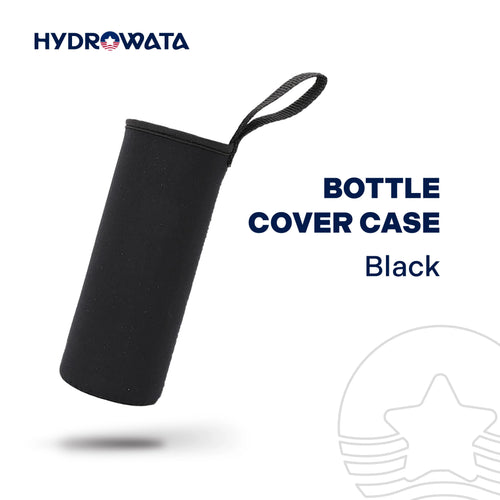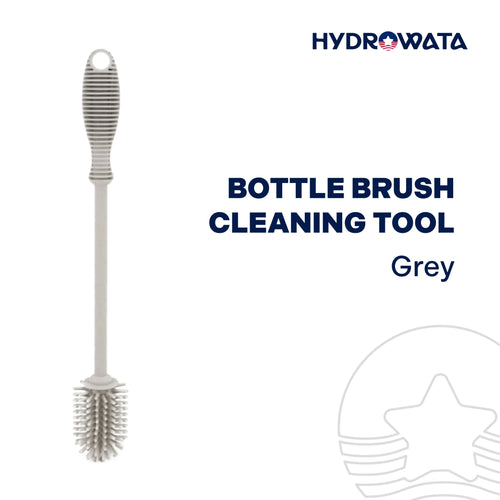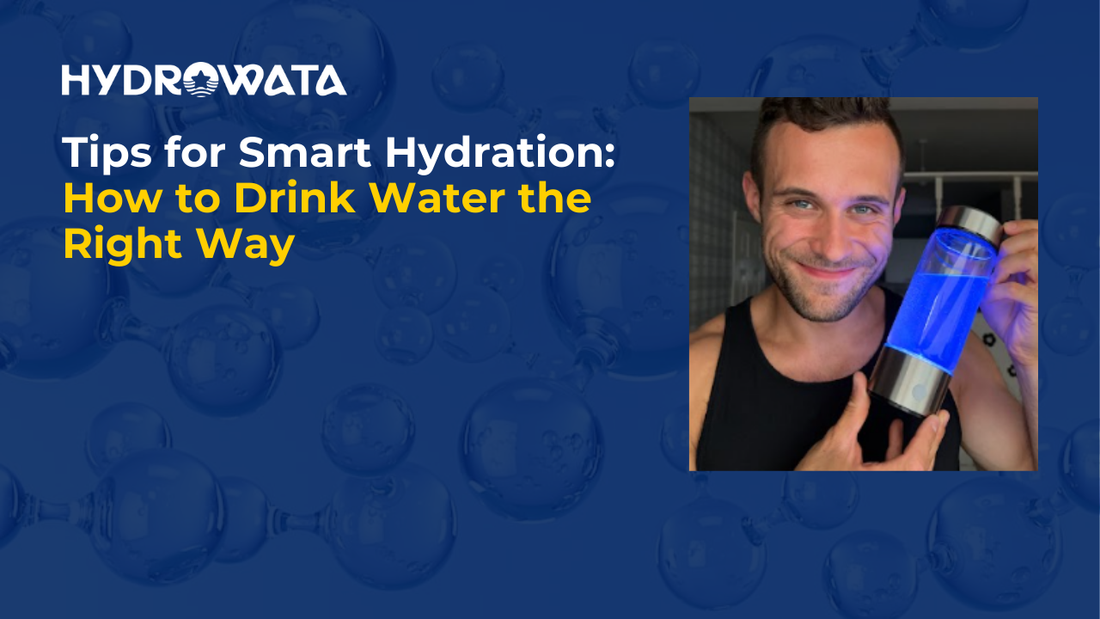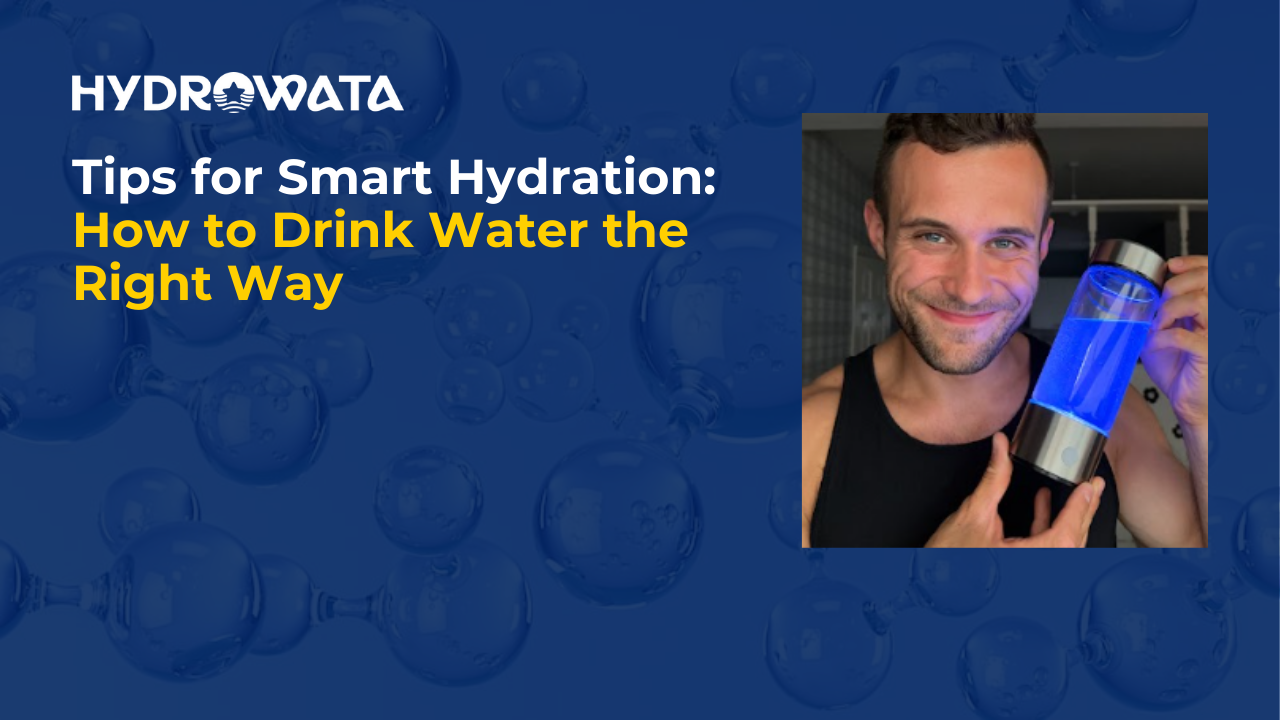“Drink eight glasses of water a day and you’re healthy.” We’ve all heard this advice, and while it’s rooted in truth, it overlooks something critical: timing and technique. It's not just about quantity—it’s about how to drink water the right way.
Water is essential for life. It supports digestion, regulates temperature, cushions joints, delivers nutrients, and flushes out toxins. But if you drink water improperly—too fast, at the wrong time, or in excess—it can interfere with your body’s natural processes instead of enhancing them.
This article explores tips for smart hydration to help you stay energized, focused, and healthy. You’ll learn why timing matters, the optimal times to drink water, health risks of improper timing, and finally, proven tips for smart hydration to adopt in your daily life.
Why Timing Matters

Knowing how to drink water the right way starts with understanding that your body runs on a schedule. Your organs, hormones, and metabolic functions follow a 24-hour circadian rhythm. When you hydrate at the right times, you work with your biology—not against it.
For instance, drinking water immediately after waking up kickstarts your metabolism and rehydrates your organs. Drinking large amounts just before bed, however, may disrupt your sleep cycle due to frequent urination. Drinking too much during meals may dilute your stomach acid and slow digestion.
So, timing your water intake supports better digestion, energy levels, sleep, and even brain function. This is why one of the core tips for smart hydration is: don’t just drink enough—drink at the right time.
Optimal Times to Drink Water
After Waking Up

Drinking a glass or two of water right after waking up is one of the most effective times to hydrate. Your body becomes dehydrated overnight due to breathing and not consuming any fluids for several hours. Starting your day with water not only replenishes this loss but also kickstarts your metabolism, flushes out toxins, and prepares your digestive system for breakfast. Warm or room temperature water is best as it is more easily absorbed and gentle on the stomach.
Before Meals
Consuming a glass of water about 30 minutes before meals helps stimulate digestive enzymes and prepares the stomach lining for food. It can also help reduce overeating by promoting a sense of fullness. This timing supports better digestion and can contribute to healthy weight management. Avoid drinking large amounts of water right during or immediately after a meal, as it may dilute stomach acid and slow digestion.
Mid-Morning and Mid-Afternoon
These are typical times when people experience a drop in energy and may crave snacks. Often, this is actually a sign of mild dehydration. Drinking a glass of water during these times can improve alertness, reduce fatigue, and help maintain focus. Making water breaks a part of your daily rhythm prevents the afternoon slump and keeps your body running efficiently.
Before, During, and After Exercise
Staying hydrated while exercising is essential for performance and recovery. Drink water 30 minutes before your workout to ensure you start hydrated. Sip water during exercise to replace fluids lost through sweat. After finishing your session, rehydrate to help your muscles recover, reduce soreness, and maintain electrolyte balance.
When You're Feeling Tired or Moody

Fatigue, mood swings, and headaches are often early signs of dehydration. When you feel a sudden drop in mood or energy, try drinking a glass of water. It can help improve brain function, stabilize your mood, and support better mental clarity.
Before Bed (in Moderation)
Drinking a small glass of water before bed helps prevent dehydration during sleep. However, avoid consuming too much to prevent nighttime awakenings. Just a few sips are enough to keep your hydration levels steady through the night without disturbing your rest.
Health Risks of Improper Timing
Digestive Problems

Drinking large amounts of water during meals can dilute stomach acid, which is necessary for breaking down food. This can result in indigestion, bloating, and poor nutrient absorption. Drinking water at inappropriate times can interfere with the natural digestive rhythm, causing unnecessary stress on the stomach and intestines.
Interrupted Sleep
Hydrating heavily just before bedtime can lead to frequent trips to the bathroom at night. This interrupts your sleep cycle and affects your overall sleep quality. Over time, disrupted sleep can weaken your immune system, impair cognitive function, and contribute to chronic fatigue.
Electrolyte Imbalance
Overhydration or drinking too much water in a short period—especially without adequate electrolyte intake—can lead to a condition called hyponatremia, where the sodium levels in your blood become too diluted. This can cause nausea, confusion, muscle cramps, and in severe cases, be life-threatening. Proper timing helps distribute your water intake evenly to avoid this risk.
Dehydration During Exercise

Failing to drink water before and after workouts can lead to dehydration, especially in hot or humid conditions. Dehydration affects physical performance, increases heart rate, and can lead to dizziness or heat-related illnesses. Without proper hydration timing, your workout recovery and effectiveness are compromised.
Increased Risk of Kidney Strain
Constantly consuming large amounts of water without giving the kidneys time to filter and balance fluid levels can strain these organs. This can potentially lead to urinary issues or kidney stress. Proper timing and moderate intake allow the kidneys to function optimally and maintain internal balance.
Tips for Smart Hydration: How to Drink Water the Right Way

Listen to Your Thirst Cues
Your body has a natural mechanism for signaling when it needs water—thirst. However, these cues can be subtle and easily overlooked, especially when you’re busy or distracted. Pay attention to early signs like dry mouth, headache, dizziness, or fatigue.
Also, check your urine color—clear or light yellow usually indicates proper hydration, while darker shades suggest dehydration. Train yourself to recognize and respond to thirst cues promptly instead of waiting until you're extremely thirsty.
Follow a Hydration Schedule
Creating a hydration routine ensures that you stay consistently hydrated without relying solely on thirst. Start your day with one or two glasses of water, then aim to drink a glass every 1–2 hours.
Set reminders on your phone or use water-tracking apps to stay on track. Following a regular schedule makes hydration a habit and helps prevent the common problem of forgetting to drink water, especially during busy workdays.
Don’t Substitute Water with Sugary or Caffeinated Drinks
While drinks like soda, energy drinks, and sweetened teas may quench thirst temporarily, they often come with hidden sugars, artificial ingredients, and caffeine that can have dehydrating effects. Relying on these beverages can lead to energy crashes, weight gain, and poor hydration.
Pure water is the best option for hydration. If you need variety, opt for naturally flavored or infused water using fruits, herbs, or cucumber slices. These provide a refreshing taste without the negative effects.
Adjust Water Intake Based on Your Lifestyle
Your daily water needs can vary depending on your activity level, climate, diet, and overall health. People who exercise regularly, work outdoors, or live in hot environments lose more fluids and need to drink more water.
Likewise, high-protein or salty diets increase water demand. Pregnant or breastfeeding women and individuals with certain medical conditions may also require more water. Adjust your hydration strategy to reflect your personal needs for optimal results.
Use a Hydrogen Water Bottle – Upgrade Your Hydration with HydroWata

If you're looking to upgrade your hydration game, consider using a hydrogen water bottle like HydroWata. This innovative device infuses your drinking water with molecular hydrogen (H2), a potent antioxidant known for its health benefits. Hydrogen water has been shown to reduce oxidative stress, promote better energy levels, support muscle recovery, and even improve skin hydration.
HydroWata makes it easy to enjoy these benefits anywhere. It's compact, rechargeable, and designed with user convenience in mind. In just a few minutes, it transforms ordinary water into hydrogen-rich water, giving you a cleaner, more effective way to hydrate.
Because it offers more than just hydration. Here’s what makes it a smart choice:
- Cell Protection – Rich in molecular hydrogen, it helps combat free radical damage and oxidative stress.
- Reduces Inflammation – Supports faster recovery and reduces inflammation, especially helpful for athletes.
- Boosts Mental Clarity – Enhances focus, energy, and cognitive performance throughout the day.
- Perfect for Active Lifestyles – Ideal for athletes, busy professionals, and health-conscious individuals.
- BPA-Free & Safe – Made with premium, non-toxic materials to ensure safety and durability.
- Sleek, Modern Design – Stylish and portable—great for work, travel, or gym use.
With HydroWata, you’re not just drinking water—you’re optimizing your wellness. It's a smart investment in your long-term health and energy.
Conclusion: Drink with Purpose, Not Just Habit
Hydration is a cornerstone of health, but doing it right requires intention. Understanding how to drink water the right way means aligning your hydration with your body’s natural rhythms, avoiding common mistakes, and upgrading the quality of your water.
By following these tips for smart hydration, you can improve your energy, focus, digestion, and long-term wellness. Drink mindfully, time it well, and stay consistent—and you’ll feel the difference in every part of your day.
Remember: it’s not just about drinking more—it’s about drinking smart.





